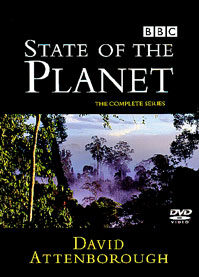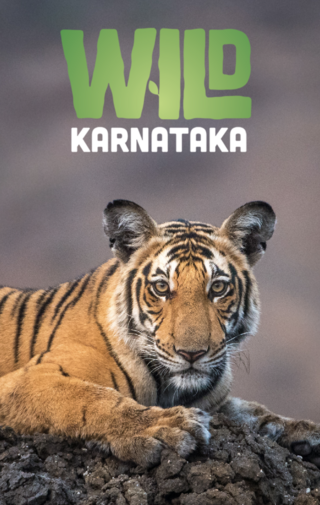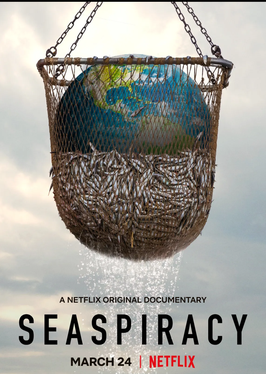
The Holocene extinction, or Anthropocene extinction, is the ongoing extinction event caused by humans during the Holocene epoch. These extinctions span numerous families of plants and animals, including mammals, birds, reptiles, amphibians, fish, and invertebrates, and affecting not just terrestrial species but also large sectors of marine life. With widespread degradation of biodiversity hotspots, such as coral reefs and rainforests, as well as other areas, the vast majority of these extinctions are thought to be undocumented, as the species are undiscovered at the time of their extinction, which goes unrecorded. The current rate of extinction of species is estimated at 100 to 1,000 times higher than natural background extinction rates and is increasing. During the past 100–200 years, biodiversity loss and species extinction have accelerated, to the point that most conservation biologists now believe that human activity has either produced a period of mass extinction, or is on the cusp of doing so. As such, after the "Big Five" mass extinctions, the Holocene extinction event has also been referred to as the sixth mass extinction or sixth extinction; given the recent recognition of the Capitanian mass extinction, the term seventh mass extinction has also been proposed for the Holocene extinction event.

Sir David Frederick Attenborough is a British broadcaster, biologist, natural historian and author. He is best known for writing and presenting, in conjunction with the BBC Natural History Unit, the nine natural history documentary series forming the Life collection, a comprehensive survey of animal and plant life on Earth.
The BBC Studios Natural History Unit (NHU) is a department of BBC Studios that produces television, radio and online content with a natural history or wildlife theme. It is best known for its highly regarded nature documentaries, including The Blue Planet and Planet Earth, and has a long association with David Attenborough's authored documentaries, starting with 1979's Life on Earth.

State of the Planet is a three-part environmental documentary series, made by the BBC Natural History Unit, transmitted in November 2000. It is written and presented by David Attenborough, and produced by Rupert Barrington. It includes interviews with many leading scientists, such as Edward O. Wilson and Jared Diamond. Each of the programmes attempts to find answers to the potential ecological crisis that threatens the Earth.

Are We Changing Planet Earth? and Can We Save Planet Earth? are two programmes that form a documentary about global warming, presented by David Attenborough. They were first broadcast in the United Kingdom on 24 May and 1 June 2006 respectively.

References to climate change in popular culture have existed since the late 20th century and increased in the 21st century. Climate change, its impacts, and related human-environment interactions have been featured in nonfiction books and documentaries, but also literature, film, music, television shows and video games.

Frozen Planet is a 2011 British nature documentary series, co-produced by the BBC ZDF and The Open University. It was filmed by the BBC Natural History Unit. The production team, which includes executive producer Alastair Fothergill and series producer Vanessa Berlowitz, were previously responsible for the award-winning series The Blue Planet (2001) and Planet Earth (2006), and Frozen Planet is billed as a sequel of sorts. David Attenborough returns as narrator. It is distributed under licence by the BBC in other countries, Discovery Channel for North America, ZDF for Germany, Antena 3 for Spain and Skai TV for Greece.

The Living Planet: A Portrait of the Earth is a BBC nature documentary series written and presented by David Attenborough, first transmitted in the UK from 19 January 1984.

Louis (Louie) Psihoyos is an American photographer and documentary film director known for his still photography and contributions to National Geographic. Psihoyos, a certified SCUBA diver, has become increasingly concerned with bringing awareness to underwater life. In 2009, he directed and appeared in the feature-length documentary The Cove, which won an Oscar for Best Documentary Feature.
Keith Scholey is a British producer of nature documentaries for television and cinema, and a former television executive. He is the joint series producer of the Netflix original documentary series Our Planet, the joint director and executive producer of David Attenborough: A Life on Our Planet, and executive producer of Breaking Boundaries: The Science of Our Planet. He is the executive producer of the 2021 BBC / Discovery series A Perfect Planet, The Mating Game and The Earthshot Prize: Repairing Our Planet. He also co-directed African Cats, Bears, and Dolphin Reef with Alastair Fothergill for Disneynature, and is also the executive producer of the series North America for the Discovery Channel.
Attenborough: 60 Years in the Wild is a three-part BBC documentary series chronicling the 60 years career making wildlife programmes of Sir David Attenborough. The first hour-long programme, titled "Life on Camera" was broadcast on Friday 16 November 2012 on BBC Two at 9pm. The second part, "Understanding the Natural World" and third and final part, "Our Fragile Planet" were broadcast on following Fridays, 23 and 30 November 2012.

Our Planet is a British nature documentary series made for Netflix. The series is narrated by David Attenborough and produced by Silverback Films, led by Alastair Fothergill and Keith Scholey, who also created BBC documentary series Planet Earth, Frozen Planet and The Blue Planet, in collaboration with the conservation charity World Wildlife Fund (WWF). The soundtrack was composed by Steven Price.

Wild Karnataka is a 2019 Indian natural history documentary on the Indian state of Karnataka's rich biodiversity, most of which is still unknown to the general public. Produced by Amoghavarsha JS and Kalyan Varma in collaboration with Icon Films and Mudskipper, the film was edit produced and written by Nicholas Gates, narrated by Sir David Attenborough with music composed by Grammy Award winner, Ricky Kej and edited by Adam Kirby.

Seven Worlds, One Planet is a documentary series from the BBC Natural History Unit. The seven-part series, in which each episode focuses on one continent, debuted on 27 October 2019 and is narrated and presented by naturalist Sir David Attenborough. Over 1,500 people worked on the series, which was filmed over 1,794 days, with 92 shoots across 41 countries.

A Life on Our Planet: My Witness Statement and a Vision for the Future is a 2020 book by documentarian David Attenborough and director-producer Jonnie Hughes. It follows Attenborough's career as a presenter and natural historian, along with the decline in wildlife and rising carbon emissions during the period. Attenborough warns of the effects that climate change and biodiversity loss will have in the near future, and offers action which can be taken to prevent natural disaster. A companion book to the film David Attenborough: A Life on Our Planet, it was positively received by critics.

Extinction: The Facts is a 2020 documentary film by the natural historian David Attenborough which aired on the BBC. It depicts the continuing sixth mass extinction, caused by humans, and the consequences of biodiversity loss and climate change. It also suggests positive action which can be taken to halt or reverse these effects. With a peak viewership of roughly 4.5 million on its premiere, the programme received positive critical reception.

A Perfect Planet is a 2021 five-part earth science series presented by David Attenborough. The first episode premiered on 3 January 2021 on BBC One. Filming took place over four years, across 31 countries, with crew navigating difficulties in extreme temperatures and remote locations. The editing process was affected by the COVID-19 pandemic. The series covers volcanoes, the sun, weather and oceans, with the final episode focusing on human impact on the environment. It received positive critical reception.

Seaspiracy is a 2021 documentary film about the environmental impact of fishing directed by and starring Ali Tabrizi, a British filmmaker. The film examines human impacts on marine life and advocates for ending fish consumption.

Breaking Boundaries: The Science of Our Planet is a 2021 documentary film directed by Jon Clay, and presented by David Attenborough and Johan Rockström.

The Green Planet is a 2022 nature documentary series on plants and their relationship with animals, humans and the environment. It was produced by BBC Studios Natural History Unit and narrated and presented by David Attenborough.

















